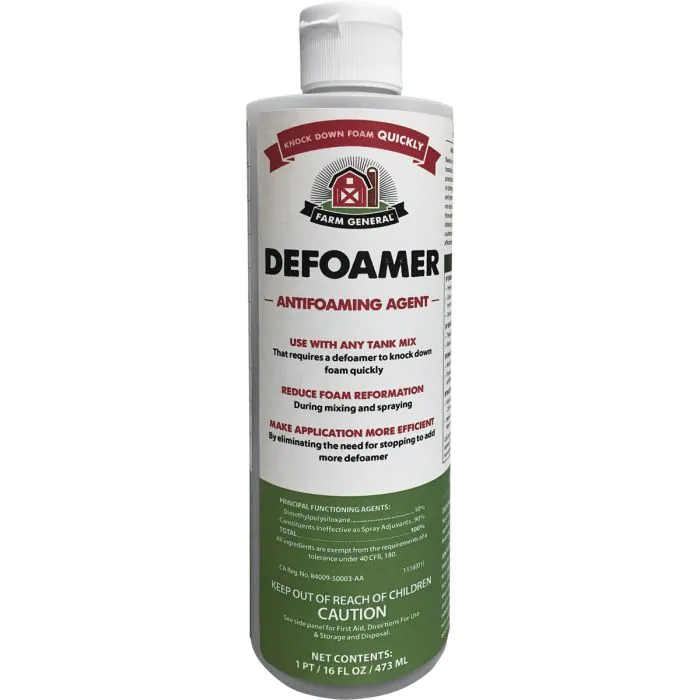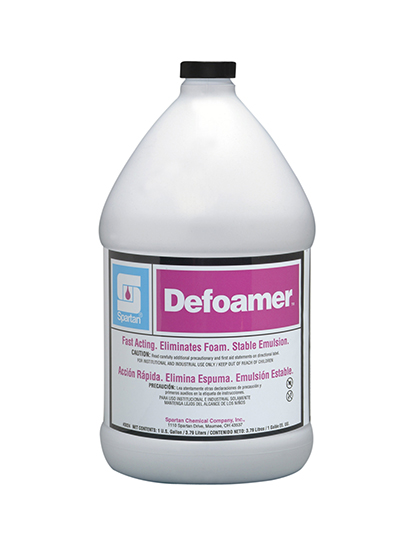Why a Reliable Chemical Defoamer Is Crucial for Maintaining Manufacturing Productivity
Why a Reliable Chemical Defoamer Is Crucial for Maintaining Manufacturing Productivity
Blog Article
Discover the Leading Reasons You Need a Chemical Defoamer for Effective Foam Control
In different commercial applications, efficient foam control is extremely important for keeping functional efficiency and product quality. Chemical defoamers work as necessary representatives that minimize foam formation, therefore enhancing processes in markets such as food manufacturing, drugs, and wastewater therapy. Their capacity to lower surface tension not only assists in quicker foam collapse yet additionally causes significant price savings and enhanced resource monitoring. As we explore the multifaceted advantages of chemical defoamers, it ends up being evident that their function extends beyond simple foam reduction, affecting general efficiency in manner ins which might not be immediately apparent.
Improved Operational Efficiency
How can the effective use of chemical defoamers considerably enhance functional effectiveness in different commercial processes? The presence of foam can hinder production by blocking tools, minimizing capability, and complicating procedure control. Chemical defoamers function as an important option in reducing these difficulties. By decreasing surface area stress, they promote the rapid collapse of foam, enabling smoother procedure and decreasing downtime (Chemical Defoamer).
In industries such as food and drink, pharmaceuticals, and wastewater therapy, the application of defoamers boosts process security and product high quality. As an example, in fermentation procedures, regulating foam generation is important for making the most of return and efficiency. Furthermore, making use of defoamers can lead to a lot more effective blending and aeration, causing enhanced response times and overall performance.
In addition, when foam is successfully regulated, it reduces the threat of overflow and contamination, ensuring compliance with safety and top quality standards. Eventually, the combination of chemical defoamers into commercial procedures promotes an extra efficient workflow, optimizing output while preserving top notch requirements.
Cost Savings and Resource Management

In many applications, extreme foam can trigger overuse of chemicals, leading to unnecessary costs. By managing foam levels, businesses can maximize their chemical input, therefore lowering functional prices.
In addition, lowered foam in handling systems can enhance the overall throughput, permitting centers to boost production capacity without sustaining added prices - Chemical Defoamer. This reliable source administration translates into significant financial advantages, allowing companies to assign funds toward technology or growth. In recap, the assimilation of chemical defoamers into industrial procedures cultivates a much more resource-efficient and economical atmosphere, ultimately sustaining organizational growth and sustainability
Improved Product High Quality

The use of chemical defoamers plays a critical duty in boosting product top quality across various markets. Too much foam can bring about irregular product formulations, affecting the final attributes of goods such as paints, layers, foodstuff, and pharmaceuticals. By minimizing foam development, chemical defoamers promote smoother manufacturing processes, ensuring that solutions stay consistent and fulfill specified high quality requirements.
In the food and drink market, for example, the presence of foam can influence the clarity and preference of products, eventually affecting consumer contentment. Chemical defoamers assist keep the desired structure and appearance, consequently boosting the overall high quality of the last product. In the manufacturing of paints and coatings, foam can lead to defects such as pinholes and inadequate attachment, undermining the product's efficiency.
In addition, making use of defoamers can enhance the efficiency of processes visit like fermentation and emulsification, which are important for attaining desired product characteristics. By enhancing production and guaranteeing constant top quality, chemical defoamers not just boost completion product however additionally contribute to a positive brand reputation. Hence, investing in efficient foam control options is crucial for any kind of business aiming to deliver top quality items regularly.
Tools Protection and Durability
Decreasing foam manufacturing is important for securing devices and ensuring its durability in different industrial applications. Excessive foam can result in a variety of operational problems, consisting of tools damages, raised maintenance costs, and unplanned downtime. When foam builds up, it can create overflow, resulting in spills that endanger the honesty of machinery and bordering areas.
In addition, foam can obstruct sensing units and pumps, which can hinder performance and performance. In extreme instances, it can cause the malfunction of components, necessitating pricey repair services or substitutes. By making use of a chemical defoamer, business can efficiently mitigate foam development, therefore safeguarding their devices from the harmful effects of foam-related concerns.
In enhancement to preventing damage, effective foam control can substantially boost the functional life expectancy of machinery. With minimized wear and tear, tools can keep peak performance levels for an extended period, translating to lower overall functional expenses. Implementing a defoamer not just guarantees functional efficiency yet additionally adds to a much more sustainable service model by expanding the lifecycle of valuable these details possessions. As a result, investing in a top quality chemical defoamer is a positive approach for safeguarding tools and cultivating long life in industrial setups.
Flexibility Throughout Industries
Chemical defoamers play a crucial role in different industries, successfully resolving foam-related challenges across diverse applications. Their adaptability is evident in industries such as food and drink, pharmaceuticals, and wastewater treatment, where foam can hamper procedures and lower efficiency. In the food industry, defoamers guarantee smooth production by stopping foam development throughout blending, fermentation, and bottling, consequently maintaining product quality and consistency.

In addition, in wastewater treatment centers, chemical defoamers are employed to control foam throughout the aeration procedure, promoting ideal microbial task and enhancing the total therapy efficiency. Their capability to work efficiently in high-temperature and high-shear atmospheres better highlights their adaptability.
Final Thought
In conclusion, the usage of chemical defoamers is imperative for efficient foam control throughout various sectors. Their capability to boost operational effectiveness, produce substantial cost savings, improve product top quality, and shield equipment highlights their important role in industrial procedures. Furthermore, the flexibility of defoamers enables for prevalent application in food manufacturing, pharmaceuticals, and wastewater therapy, ultimately contributing to sustainable growth and the maintenance of high operational requirements. The integration of defoamers is important for enhancing general performance.
Chemical defoamers offer as necessary representatives that alleviate foam development, thus enhancing processes in fields such as food manufacturing, drugs, and wastewater treatment. As we explore the multifaceted advantages of chemical defoamers, it becomes noticeable that their duty prolongs beyond mere foam decrease, affecting general efficiency in ways that might not be quickly evident.
By alleviating foam formation, chemical defoamers facilitate smoother manufacturing processes, ensuring that important link solutions continue to be uniform and meet specific quality requirements.
By using a chemical defoamer, companies can properly alleviate foam formation, hence securing their tools from the destructive impacts of foam-related issues.
In verdict, the usage of chemical defoamers is important for effective foam control across different industries.
Report this page